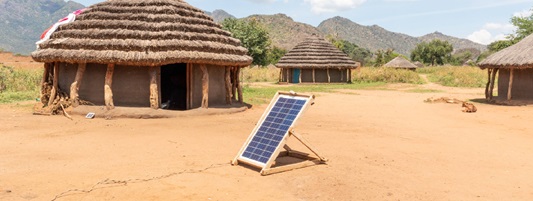Off-grid for Energy Access
About
The International Renewable Energy Agency (IRENA) organises the International Off-Grid Renewable Energy Conference (IOREC), a global platform for sharing experiences and best practices on design and implementation of enabling policies, tailored financing schemes, innovative business models and technology applications for stand-alone and mini-grid systems.
Following the previous IORECs held in Ghana in 2012, Philippines in 2014, and Kenya in 2016, the 4th edition of IOREC was convened in Singapore on 31 October and 1 November 2018 during the Singapore International Energy Week 2018, in conjunction with the ASEAN Ministers on Energy Meeting. In addition to focusing on the aspects pertaining to creating an enabling environment for both stand-alone and mini-grid renewable energy systems, the 4th edition of IOREC also highlighted the variety of socioeconomic benefits of off-grid renewables and their contributions to several SDGs.
Key messages from the discussion at the event:
- Modern energy access is central to achieving the Sustainable Development Goals and governments should consider the entire spectrum of opportunities offered by off-grid renewable energy solutions for expanding affordable, reliable and sustainable access to households, support livelihoods, enhance delivery of essential services (e.g., health) and strengthen gender equality.
- National level electrification strategies and plans should mainstream off-grid renewable energy solutions and facilitate co-operation between actors. To ensure effective implementation of energy access plans, institutional and legal frameworks at the national level should clearly define roles and responsibilities of public sector institutions, streamline administrative procedures and ensure adequate capacities.
- To ensure private sector involvement in energy access, the policy and regulatory framework should provide the right set of incentives and risk coverage to private investors and alleviate the barriers to unlock financing for the sector.
- Regulations are of particular importance in the case of renewable energy mini-grids where governments have the dual role of ensuring economic viability for developers while ensuring tariffs are not too high for underserved communities. Furthermore, with the right set of regulations in place, main grid arrival, often seen as a major risk for mini-grid developers, can become an opportunity both for developers and utilities alike.
- The financial instruments and products on offer from banks and other financing institutions do not always match the sector demands. To foster innovation in the sector and accelerate deployment, financing instruments on offer need to be tailored especially to the requirements of end users and small enterprises.
- Putting in place the right ecosystem for accelerating off-grid renewable energy deployment requires efforts to develop the necessary human capital by building capacities across the off-grid value chain and supporting local entrepreneurship.
- Off-grid renewable energy should be viewed as a job creating opportunity as it has the potential to create millions of jobs across the value chain. Efficient end-use appliances need to be included in the off-grid ecosystem to ensure affordability and long-term sustainability.











